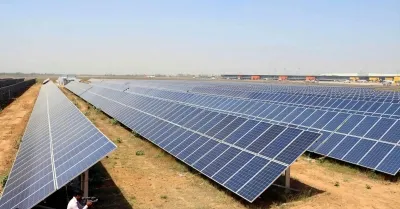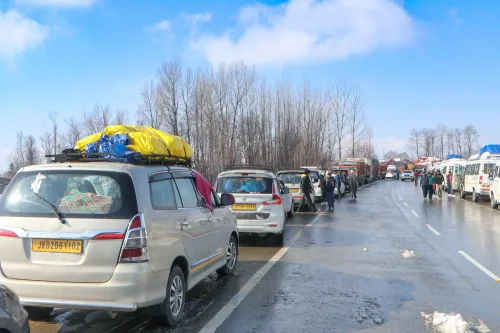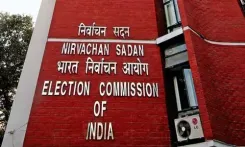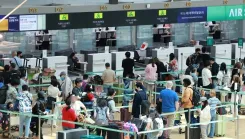What to Expect from the ISA Regional Meeting in Colombo?

Synopsis
Key Takeaways
- Collaboration is key for advancing solar energy initiatives.
- The meeting will address challenges faced by Small Island Developing States (SIDS).
- Cross-border solar trade frameworks will be explored.
- New partnerships and agreements are expected to emerge from the discussions.
- Institutional capacity will be enhanced through new STAR Centres.
New Delhi, July 8 (NationPress) The International Solar Alliance (ISA) is set to conduct the seventh Regional Committee Meeting (RCM) for the Asia and the Pacific Region from July 15-17 in Colombo, Sri Lanka, as announced by the Ministry of New and Renewable Energy.
This significant conference will gather government representatives, technical institutions, think tanks, institutional allies, and private sector leaders to further a collaborative agenda aimed at enhancing solar energy deployment within this vibrant and varied region.
Themed ‘Advancing Solar Cooperation Across a Region of Diversity and Opportunity’, this meeting will act as a hub for strategic discussions, knowledge sharing, and actionable outcomes to bolster the APAC region's leadership in the global solar transition, according to a ministry statement.
Ashish Khanna, Director General of ISA, emphasized, “The Asia and the Pacific Region is central to the global energy transition. The RCM in Colombo represents a chance to create practical, investment-ready solutions that can be implemented across various countries and technologies.”
From developing regional solar energy platforms for Small Island Developing States (SIDS) to enhancing interconnections between nations, and fostering the growth of innovative technologies such as Green Hydrogen and storage solutions, this meeting aims to pave the way for a solar-powered future rooted in collaboration and local leadership, he added.
The RCM, led by the Vice President of the region, the Socialist Republic of Sri Lanka, will act as a venue to align regional solar objectives with ISA’s evolving strategic framework based on its four foundational pillars. These pillars encompass expanding finance initiatives to mitigate risks associated with solar investments and promoting ISA’s vision of creating a ‘Silicon Valley for Solar’ through a hub-and-spoke model.
The remaining two pillars focus on enhancing initiatives like the SIDS platform for e-tendering and e-procurement to aggregate regional demand and broaden market access, as well as formulating a technology roadmap and policy innovations.
These initiatives build on the ISA-ADB joint project concerning Ecosystem Readiness for Green Hydrogen, which was prominently featured at the Asia Clean Energy Forum (ACEF) 2025 held in Manila, Philippines.
Other thematic sessions during the APAC RCM will delve into:
Operationalizing the SIDS solar platform, enhancing institutional capabilities through STAR Centres, and accelerating advancements in green hydrogen, energy storage, and E-Mobility.
Creating policy frameworks and project pipelines for emerging solutions, particularly focusing on Least Developed Countries (LDCs) and Small Island Developing States (SIDS).
Advancing Regional Interconnections: Investigating frameworks for cross-border solar trade, innovative financing models, and utilizing regional grid infrastructure to enhance solar access and reduce costs.
The RCM will also feature the signing of Country Partnership Frameworks with selected nations and Partnership Agreements with regional and international organizations to further fortify ISA’s solar initiatives and expand collaborative efforts throughout the Asia and Pacific region. Furthermore, the meeting will showcase discussions on establishing new regional STAR Centres aimed at boosting institutional capacity, enhancing technical expertise, and supporting the region’s long-term solar energy objectives.
This Regional Committee Meeting represents a pivotal step in strengthening ISA's regional engagement, setting the stage for impactful programs, resilient partnerships, and sustainable strategies in line with ISA’s Framework Agreement and the overarching global climate agenda, the statement concluded.










